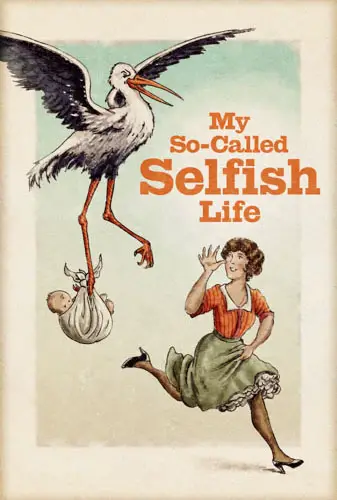
Most women who do not want children, at some point or other in their lives, have heard one of the following: “Whose going to take care of you when you are old,” “It is a woman’s greatest joy,” “Don’t you want to give your parents grandchildren,” or “You will never know real love until you have a child.” Director Therese Shechter’s documentary, My So-Called Selfish Life, confronts the many culturally entrenched notions surrounding womanhood and how they clash with women who willingly decide not to have children.
Many societies have pronatalist ideologies that make women feel as though they are not adhering to their “essential nature” if they do not bear children. These women face pressure from parents, romantic partners, friends, and even the media. Ideology works when it passes itself off as common sense or essentializes someone in terms of biology. The co-writer/director does a thorough job of covering the many ways women have been portrayed as one-dimensional beings. They are told that motherhood is their destiny; that you buy a house in order to raise children in; that women are nurturing and motherhood is the channel through which you best express that nature; it is repeated to them that their biological clock is ticking and once time is up, it is too late. Sometimes the pressure is in the form of holidays, i.e., Mother’s Day. Sometimes the pressure comes from a woman’s circle of friends, as all their friends are having babies.
My So-Called Selfish Life holds the thesis that there is an ideology disseminated through the media that equates gender fulfillment with childbirth. The documentary uses a number of television and film clips to prove its point. It does so quite effectively in clips involving ads for pregnancy tests in which actresses rejoice over discovering a positive result. The relief over getting a negative result is rarely part of the narrative. But even in the face of all these messages, some women, after careful consideration, decide not to have children.

“…confronts the many culturally entrenched notions surrounding womanhood and how they clash with women who willingly decide not to have children.”
The tactic used against them is to call these women “selfish.” Several women interviewed point out the ridiculousness of such accusations. They rightfully state that they are being no more selfish than those who justify having children so as to have caretakers later on in life. These women also discuss that their decision was not based on whim. Joining the military, taking on college debt, or some other major life event are typically much less thought through and are never stigmatized as rash.
My So-Called Selfish Life takes on a serious subject and is informative yet does not feel long. Fertility and women’s bodies have always been a concern for healthcare and the state — ironically enough, two areas usually run by men. Subjects such as menstruation, eugenics, forced sterilizations, and the ties between fertility rates and the maintenance of a steady supply of laborers are all touched upon.
If there is one critique, it is that in her attempt to be brisk, Shechter leaves out three huge reasons why many nowadays do not want to have children. Some do not want children because they feel that the U.S. does not provide enough maternity leave and childcare overall, while others notice that their financial future is not as rosy as it was for their parents and grandparents. Finally, climate catastrophe is seen as unavoidable and women question whether it is prudent to bring children into such a bleak future. One wishes the director would have given some attention to these concerns.
But, all in all, My So-Called Selfish Life is a timely documentary on an issue as pressing as ever. Women’s bodies and fertility are continuing areas of concern for those in power — again, usually men. The recent laws passed in Texas—and perhaps due to be passed in other states — are evidence enough.

"…a timely documentary on an issue as pressing as ever."



[…] post My So-Called Selfish Life first appeared on Film […]